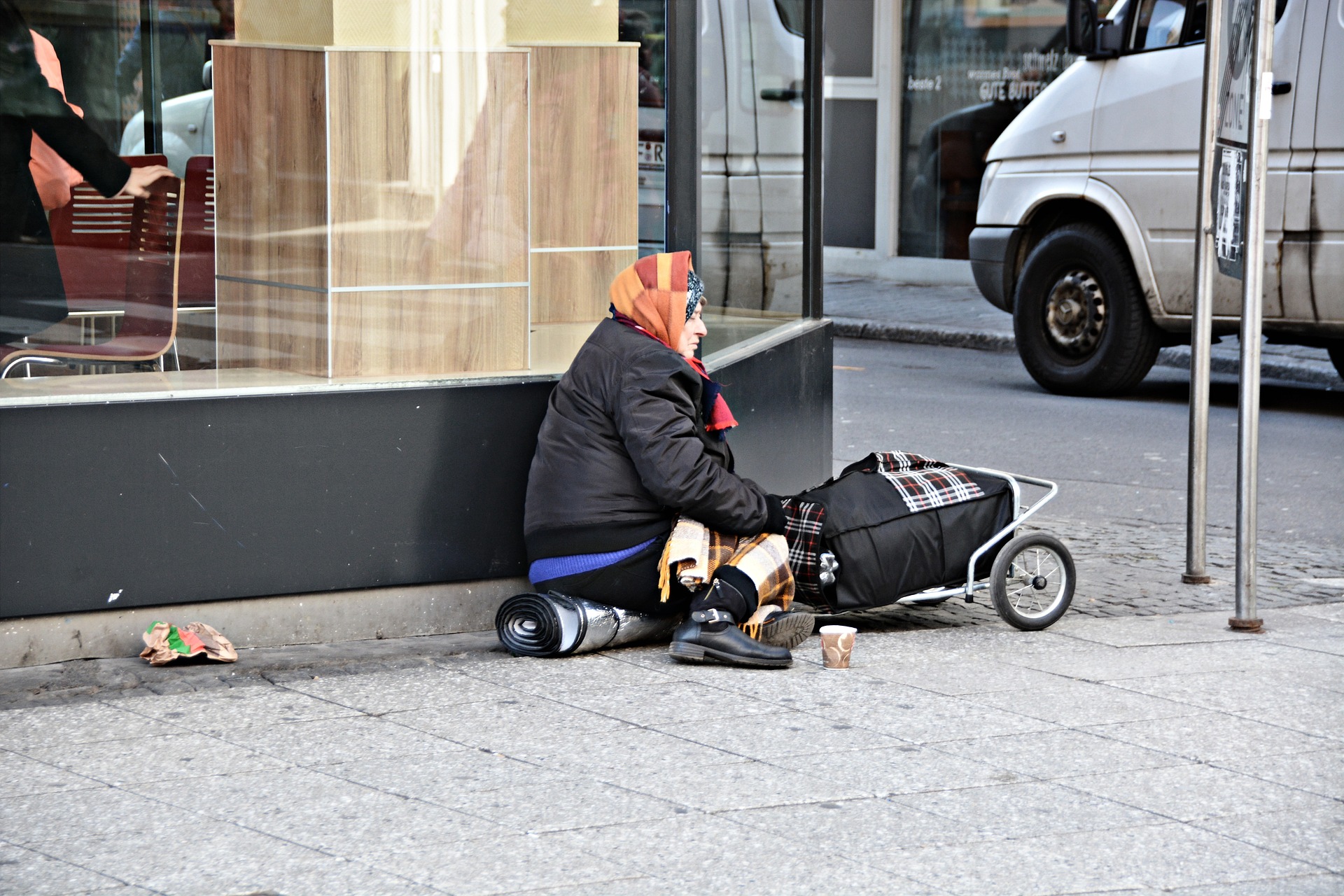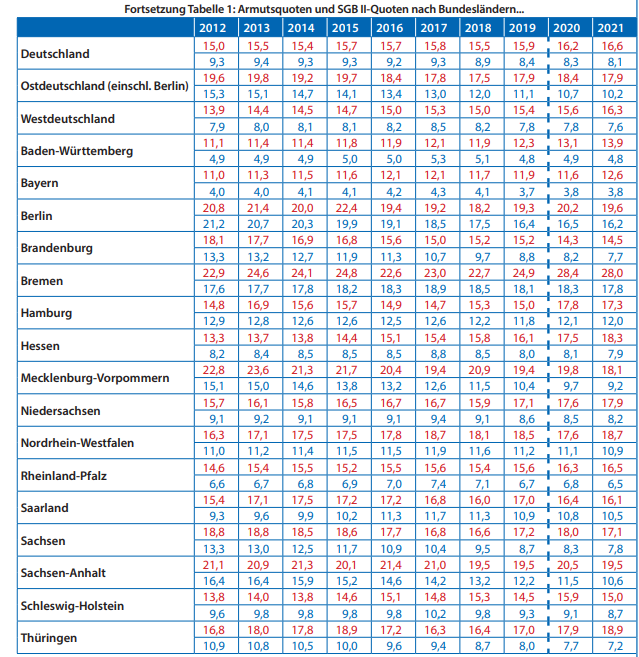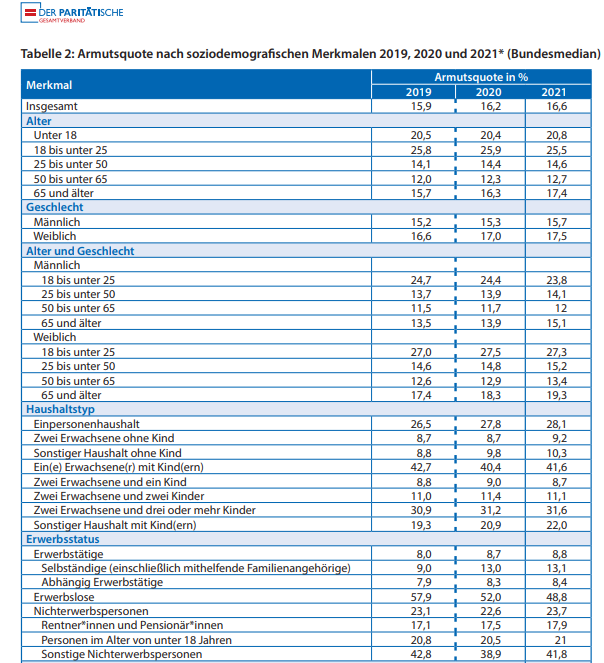
Great power sees growing number of people living in poverty
The rising number of people living in poverty is a rather revealing fact given that one of Europe's great powers is in question. The process, which began long before the coronavirus pandemic and the wartime inflation, affects all age groups.
A growing number of people live in poverty in Germany, according to a recent study by the Institute of Economic and Social Research (WSI) of the Hans Bockler Foundation. The report reveals that
the proportion of those living in „extreme poverty” (on an income less than 50 per cent of the median income) increased from 7.9 per cent in 2010 to 11.1 per cent in 2019, implying that this process can be attributed neither to the coronavirus pandemic, nor to the current war-fuelled inflation.
The study also shows how long-term poverty in Germany poses a hurdle to social participation even in economically stable times. For example, people on low income far more often have to do without everyday commodities such as basic clothing or footwear, they live in smaller homes and are less able to heat them properly, they face much higher health risks and have rather limited opportunities in education.
This increasingly prompts many of those affected to keep their distance from the political system: almost two-thirds of those living below the poverty line believe that democracy does not function well in Germany.
The latest poverty report found that 13.8 million people live on less than sixty percent of the average income. As V4NA recently reported, the number of people living in poverty has risen by around six hundred thousand in the last two years alone. Ulrich Schneider, executive director of the social organisation Paritatischer Gesamtverband, said that the new data are shocking, as they show that
„the official micro-census has never seen a higher figure, and poverty has never spread so rapidly in recent times as during the pandemic.”
With inflation skyrocketing, the situation will only get worse in the near future, the expert warned. The proportion of people falling under the official definition of poverty is a record 16.6 per cent of the total population.

Poverty is dramatic among people living alone, as they have been hit particularly hard by the harsh measures imposed to curb the coronavirus epidemic. Among them, the share of people on precarious incomes rose from almost 9 per cent to 13.8 per cent. Pensioners (17.9 per cent) and children (20 per cent) are also much more affected by poverty.
It is important to note that poverty is merely a ratio that determines the proportion of people in the lower income brackets.

Shocking figures on child poverty were also presented at an expert meeting of the German Federal Parliament’s Committee for the Protection of Children. In Germany, 2.8 million children, or one in five, grow up in poverty. These are 2020 figures, meaning that the situation have most likely been exacerbated by the coronavirus pandemic and the war-fuelled inflation.
Child poverty is particularly high in urban areas, and children in single-parent and multi-child families are also particularly affected. One of the reasons why this is a big problem is that poverty limits children’s development,
experts say. The poverty rate is also high, at 17.5 per cent in the countryside, where more than half of the population lives. In those areas, people have to travel much greater distances to buy basic necessities, and they have to rely on their cars to a much greater extent. This is an additional cost for some families and is completely out of reach for others. They, therefore, have to use the poorly developed public transport.
„Unfortunately, the social reproduction rate of poverty is also high. Children from families where parents work in the low-wage sector are at high risk of falling into poverty themselves,”
experts pointed out.
Tags:

